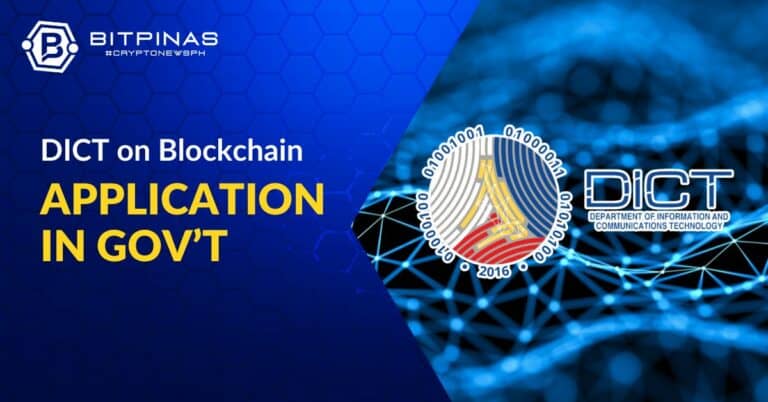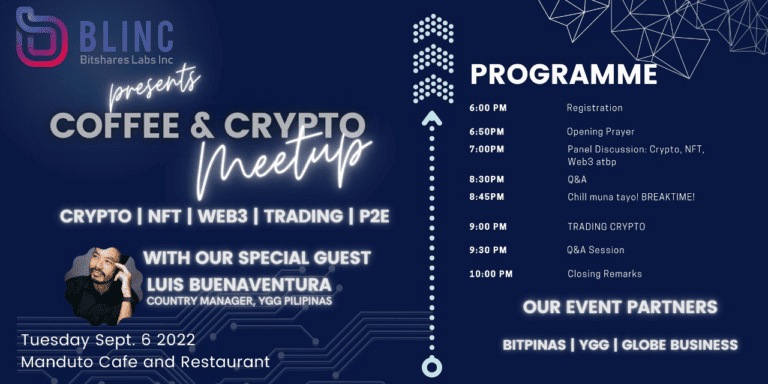How a Regulated Crypto Exchange Operates in the Philippines
Read the latest interview with Coins CEO Wei Zhou, as he discusses the firm’s adherence to regulations and challenges as a regulated entity.

Subscribe to our newsletter!
Editing by Nathaniel Cajuday
- Wei Zhou, CEO of Coins.ph, discussed the company’s operations under the regulations of the Bangko Sentral ng Pilipinas (BSP), emphasizing regular audits and regulatory oversight.
- The CEO also praised the knowledge and expertise of Philippine regulators, highlighting their understanding of the cryptocurrency industry and their support for its growth.
- As per Zhou, though Coins.ph faces challenges in performing KYC procedures and keeping user information up to date, the platform still aims to improve the user experience and make compliance processes more convenient in the future.
After more than a year since his first interview with BitPinas, Wei Zhou, the CEO of Philippine-based crypto exchange and e-wallet Coins.ph, is back for another conversation on what’s next for Coins.ph.
The interview was live streamed last May 17, 2023, 8:00 p.m. (UTC+8) on the BitPinas Facebook Page and Coins.ph Facebook page. The interview featured valuable insights from Zhou’s perspective. He also shared about the company’s vision, goals, and his views on the future of cryptocurrency in the country.
Coins.ph with Regulators
According to Zhou, the platform operates under the regulation of the Bangko Sentral ng Pilipinas (BSP), the country’s central bank. Currently, Coins.ph holds a virtual asset service provider license granted by the BSP, which covers various aspects of their business, including custody, trading, and asset transfers.
“It’s managed no differently than the banks. We basically have regular audits by the BSP. They actually go into our cold wallet and they actually see, ‘do you actually have what you say you have?’ It’s a regular audit,” he shared.
Meanwhile, being the former Chief Financial Officer of Binance as well as engaging abroad for his other ventures, where he got the chance to interact with regulators from other countries, Zhou expressed that he is “pleasantly surprised” to how knowledgeable the country regulators are about the industry.
However, the CEO noted that the Securities and Exchange Commission (SEC) may become more involved in regulating the industry, particularly in ensuring fair dealings and authentic trading on exchanges.
Overall, the regulators in the Philippines show expertise and a willingness to foster industry growth, while other bureaus oversee aspects such as marketing, according to Zhou:
“But I do think at least here in my conversations, the regulators in our space are actually quite knowledgeable and they’ve been following what’s going on. They know what’s going on and they see an opportunity, I think, to grow the industry as well.”
Pros and Cons of Being a Licensed Exchange
One of Coins.ph challenges as a regulated entity, as per Zhou, is related to performing the know-your-customer (KYC) procedures, maintaining up-to-date information from users, and adhering to know-your-transaction (KYT) requirements, which involve monitoring addresses and transactions for potential illicit activities.
“It’s not like you do your KYC once, and then that’s your information for five years. And then for us, we actually have to within a certain amount of time, you have to update your picture, you have to update your ID. It’s very painful. It’s very painful for your users. It’s not a good user experience. We’re going to try to figure out how to make that as light touch as possible,” he stated.
Last year, talking about the topic of regulatory compliance during the Philippine Web3 Festival, Zhou emphasized the importance of following the rules and guidelines set by the regulators, adding that as responsible citizens and participants in a regulated business, failure to comply with regulations could result in imprisonment.
The CEO even highlighted the straightforward consequences of not adhering to regulatory oversight–they will go to jail.
Wei Zhou on Travel Rule
When asked regarding the feature of Coins.ph that requires the sender to disclose the beneficiary address regardless of the amount, Zhou explained that Coins.ph currently follows the travel rule and requires users to disclose recipient details for any amount sent. However, he expressed the intention to streamline the process in the future.
“I think the biggest challenge of travel rules is that the Financial Action Task Force (FATF) is actually kind of like the governing body that looks after the world’s banks, right? So if you want to get plugged into the global banking financial system, you have to follow what FATF tells you. And then the Philippines, unfortunately right now is in the FATF gray space. I think we really need to work as a country to get off that because that decreases financial access, I think, for our banks, and that actually increases transaction costs and all of that gets passed through to us, the end customers of the banks,” he explained.
The travel rule mandates VASPs to gather information on money recipients and sources on virtual asset transfers and make it available on request to appropriate authorities. (Read more: What is the FATF “Travel Rule” in Cryptocurrency?)
The goal is to create an address book, as per the CEO, where registered addresses are automatically recorded, making it easier for users to send funds without repeatedly providing recipient information.
Lastly, Zhou emphasized the importance of user convenience while ensuring regulatory compliance:
“I think as long as we sort of earmark those, then I think it should make life easier because I don’t want to make life hard for our users to use our service.”
Check out other articles discussion the thoughts and views of Coins.ph CEO here:
- Coins.ph CEO: Crypto Payments Will Usher in Financial Inclusion in the Philippines
- Coins.ph CEO: Philippines Poised to Lead Global Fintech Innovation
- Coins.ph CEO: Stablecoins to Play Key Role in Crypto Mass Adoption
- Coins.ph CEO Talks About Taxes and Regulation
- PH Poised to be a Web3 Powerhouse Very Soon, Coins.ph CEO Believes
This article is published on BitPinas: Coins CEO on Being a Regulated Entity: ‘I Don’t Want to Make Life Hard for Our Users’
Disclaimer: BitPinas articles and its external content are not financial advice. The team serves to deliver independent, unbiased news to provide information for Philippine-crypto and beyond.






